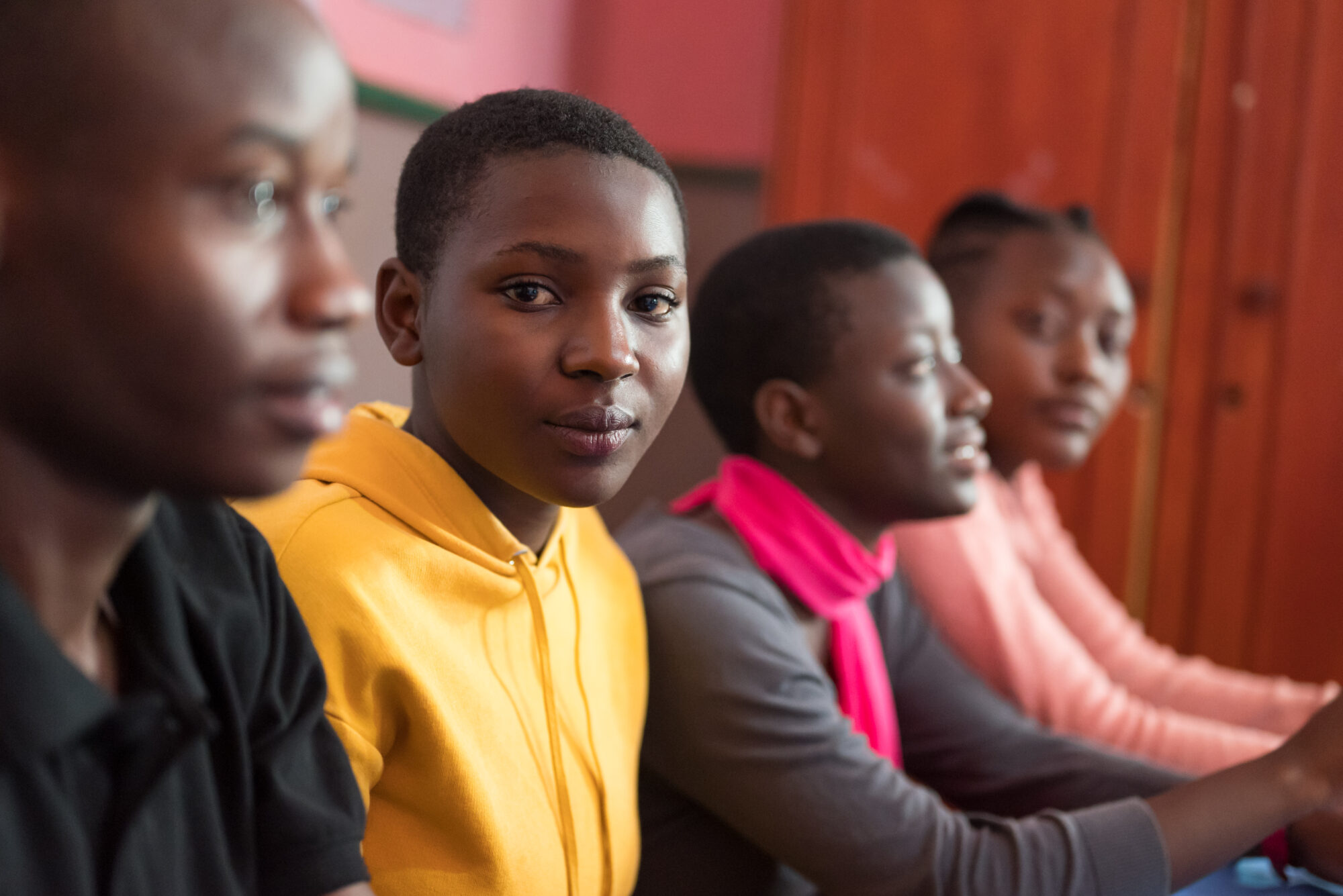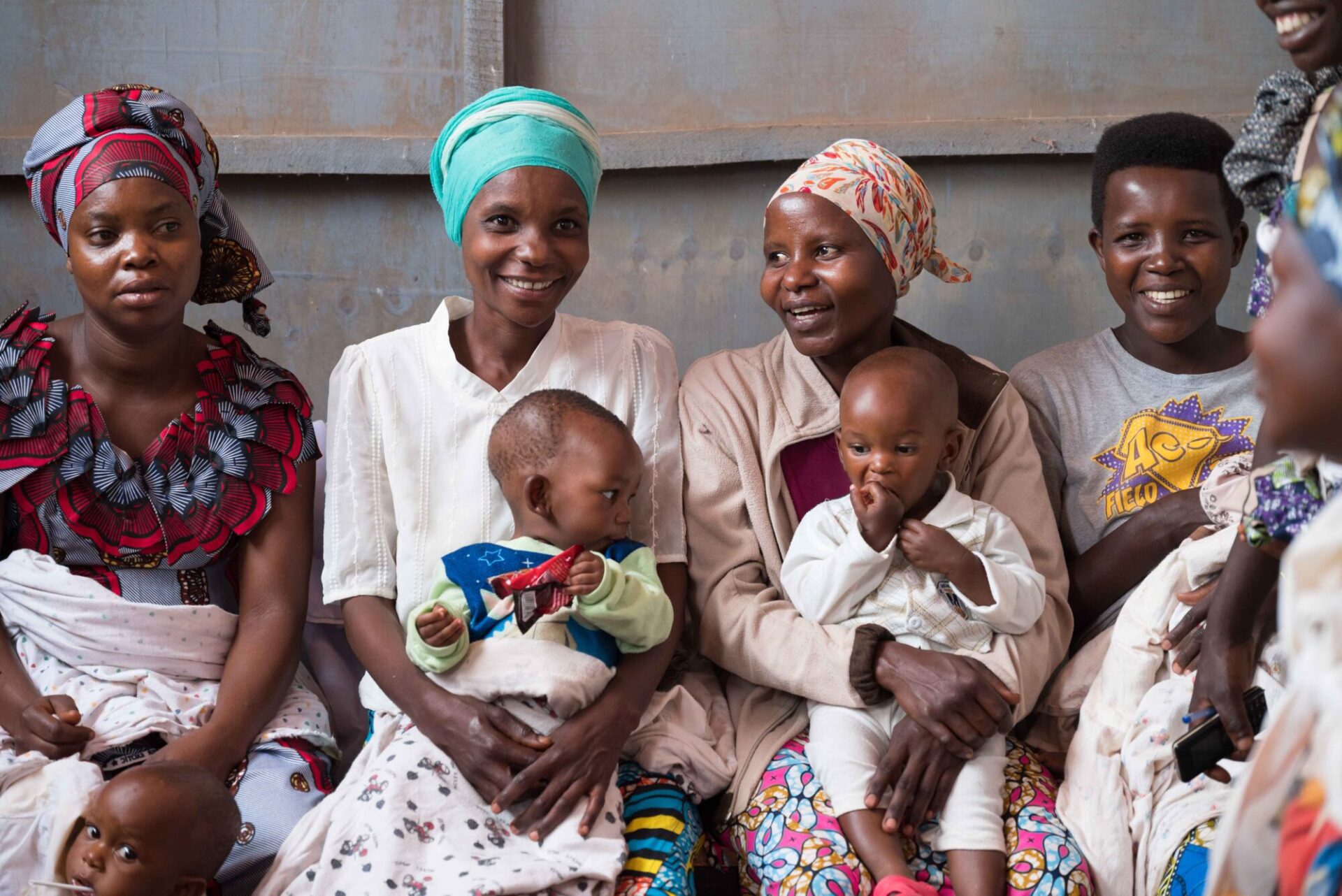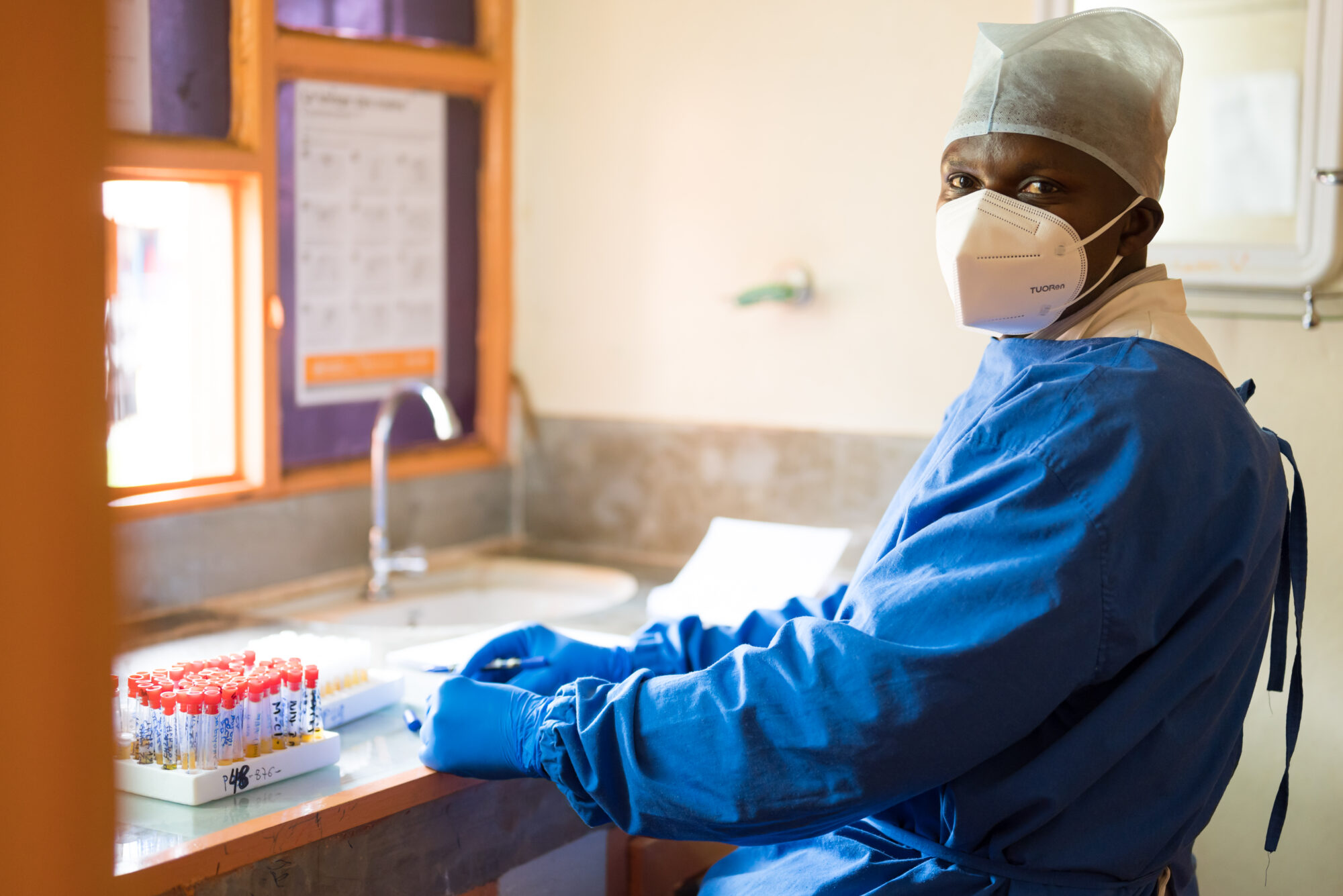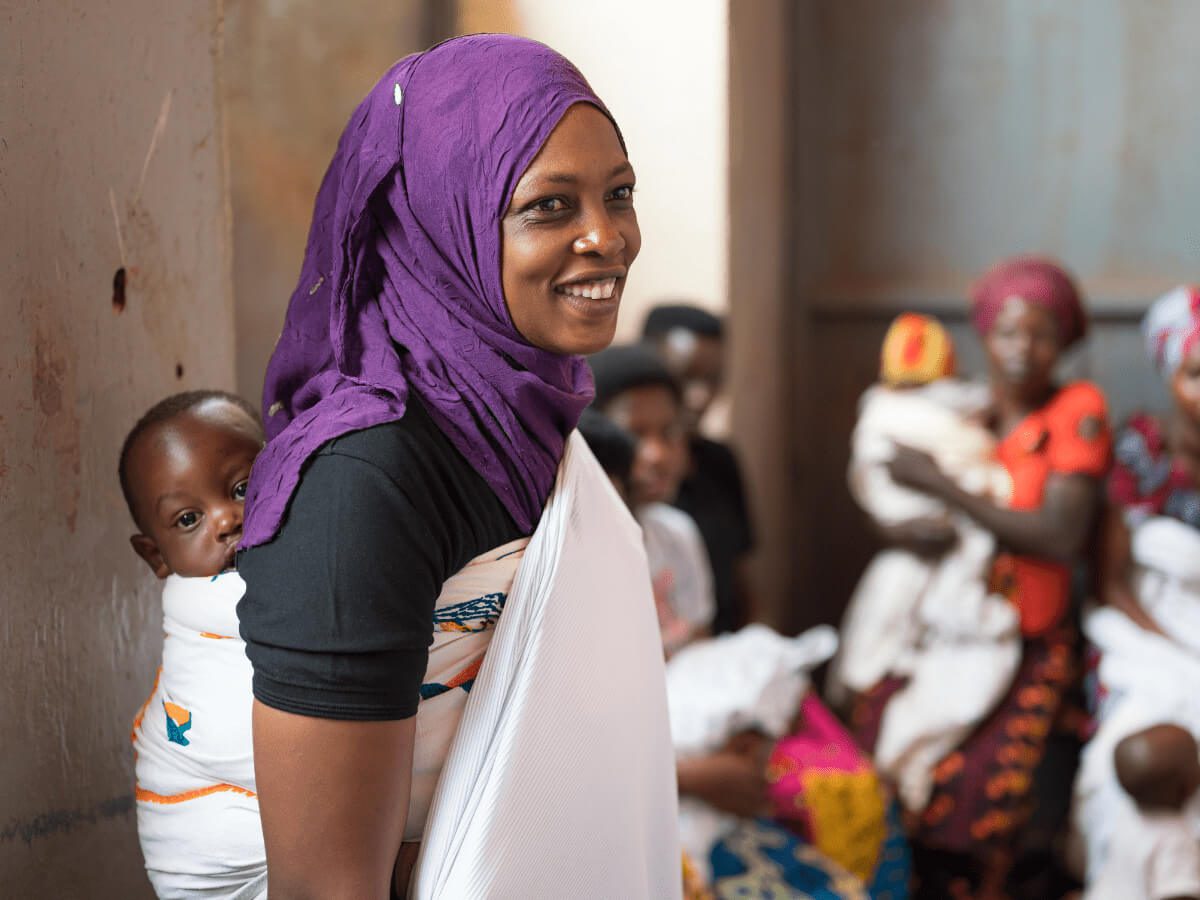Burundi, the second most densely populated country in Africa, is poised to be the first African francophone country to achieve sustained HIV epidemic control.
With support from the U.S. President’s Emergency Plan for AIDS Relief (PEPFAR) through the U.S. Agency for International Development (USAID) in Burundi, ICAP has launched a new project called Baho Mbeho, which translates to “You live, I live” in Kirundi. It is aimed at supporting Burundi in achieving the goal of epidemic control by providing HIV prevention, care, and treatment services to priority and general adult populations, children, and adolescents across the country.
Across ten provinces in Burundi, USAID through ICAP is collaborating with several local and regional partners – Réseau Burundais des Personnes vivant le VIH+ (RBP+), Réseau National des Jeunes vivant le VIH+ (RNJ+), Nouvelle Espérance (NE), Service Yezu Mwiza (SYM), Association Nationale de soutien aux Séropositifs et malades du Sida – ANSS – Santé PLUS (ANSS-Santé PLUS), Society for Women and AIDS in Africa (SWAA Burundi), and Population Services International (PSI).
Baho Mbeho will support 161 health facilities directly over the course of five years through a person-centered approach, aiming to address the unique barriers that individuals face in accessing HIV prevention, care, and treatment services across the country.
“Though immense progress has been made in achieving HIV epidemic control in Burundi, there is much work to be done to ensure the progress is sustained over the long-term,” said Bonaparte Nijirazana, MD, MPH, country director of ICAP in Burundi. “We look forward to working with our partners to target the gaps that remain and ensure that every person living with or at risk of acquiring HIV has access to the high-quality services they need to live a healthy life.”
According to 2022 UNAIDS HIV sub-national estimates, Burundi has witnessed significantly decreased HIV prevalence rates nationwide; however, there are disparities in the HIV cascade among specific provinces and populations. While Burundi’s overall HIV prevalence is 1.0 percent among adults aged 15-49, both male (2.1 percent) and female (3.2 percent) individuals between 50-54 years old face a disproportionate HIV burden. Overall, there is a 2.5 percent prevalence in the urban district of Bujumbura Mairie versus a 0.7 percent prevalence in the rural district of Bujumbura Rural. Across the age range of 15-49 years, there is a disproportionate HIV burden among women, who have a 1.1 percent HIV prevalence compared to men of the same age range who have a 0.8 percent HIV prevalence.
Through a person-centered approach, Baho Mbeho will work to improve HIV testing and prevention services to close gaps in case finding and eliminate new HIV infections throughout the country, especially among hard-to-reach populations. These include key populations, children, adolescents, men, pregnant and lactating women, and those who are difficult to reach based on their geographic location. By mobilizing peer educators, for example – who are adolescents living with HIV that help track their peers’ missed appointments – health facilities not only improve likelihood of HIV testing follow-through but foster a safe space for youth living with HIV seeking services. In addition to the 33,906 people living with HIV already enrolled in care and on treatment at the supported health facilities (by the end of September 2023), Baho Mbeho will aim to test over 141,000 people for HIV in year one of the program.

Peer educators in Gitega follow-up with clients who have missed appointments or interrupted treatment by conducting home visits or messaging clients via WhatsApp groups and texts. Photo Credit: Artur Francisco for ICAP (2023)
Baho Mbeho will also aim to increase and sustain linkage to and enrollment on antiretroviral treatment for people living with HIV. Catalyzing a differentiated service delivery approach, the program will scale-up such services as three- and six- multi-month-dispensing, requiring a client to travel less time to a health facility. Baho Mbeho will also utilize local organizations to support community actors, such as community health workers, peer educators, and mentor mothers, to optimize treatment uptake and reduce interruption in treatment. Mobilizing community actors like mentor mothers, mothers living with HIV who support pregnant and breastfeeding women living with HIV to adhere to treatment, will be an especially important approach to ensuring suppressed viral loads among pregnant and breastfeeding women, and ultimately preventing mother-to-child transmission of HIV.

Women meet with a mentor mother in Gitega. Photo Credit: Artur Francisco for ICAP (2023)
“Achieving true person-centered care is at the heart of this project,” said Hamza Burikukiye, a representative of Cadre Consultatif et Décisionnel des Organisations des Personnes vivant avec le VIH (CCDP+), a consultative and decision-making framework for organizations of people living with HIV. “Every person faces unique barriers to accessing the care they need. We must recognize those unique barriers to reach the last mile of the HIV epidemic.”
An important component of reaching clients with quality HIV prevention, care, and treatment services will be strengthening health systems at the national, district, facility, and community levels to improve coordination in HIV programming. This will include strengthening laboratory capacity to conduct high-quality HIV, early infant diagnosis, and viral load testing, as well as tuberculosis and cervical cancer screening, and improving supply chain systems, inventory, and data management and reporting. In doing so, Baho Mbeho’s impact will be even larger: the project will collaborate with private and non-PEPFAR-supported health facilities to implement capacity building of local implementing partners, civil society organizations, and district and provincial health teams to catalyze a “hub and spoke model” – in which high-volume facilities act as examples of excellence for lower-volume facilities – for increased coverage and accessibility to high-quality HIV prevention and treatment services in Burundi. In addition, Baho Mbeho will provide support for data quality and reporting, including scaling up the use of unique identifiers, such as fingerprinting, for individuals visiting health facilities, which would improve retention of clients.

A technician tests blood samples at an ICAP-supported lab in Ngozi. Photo Credit: Artur Francisco for ICAP (2023)
Baho Mbeho complements another program ICAP is involved with in Burundi, called RISE. With other partners of the Jhpiego-led consortium funded by USAID, thanks to PEPFAR ICAP has made major progress in the fight against HIV, including supporting more than 26,000 people living with HIV to maintain antiretroviral treatment, of which 95 percent have achieved viral load suppression. These gains have largely been won through the client-centered approach the HIV care and treatment program will utilize.
“The United States, through USAID, is committed to localization: listening to local voices, putting local actors at the center of what we do, and working with local organizations to build a resilient and responsive health system,” said Paul Richardson, USAID Country Representative in Burundi. “That is how we will achieve a lasting impact.”
About ICAP
A major global health organization that has been improving public health in countries around the world for two decades, ICAP works to transform the health of populations through innovation, science, and global collaboration. Based at Columbia Mailman School of Public Health, ICAP has projects in more than 40 countries, working side-by-side with ministries of health and local governmental, non-governmental, academic, and community partners to confront some of the world’s greatest health challenges. Through evidence-informed programs, meaningful research, tailored technical assistance, effective training and education programs, and rigorous surveillance to measure and evaluate the impact of public health interventions, ICAP aims to realize a global vision of healthy people, empowered communities, and thriving societies. Online at icap.columbia.edu








